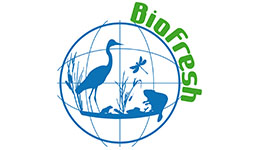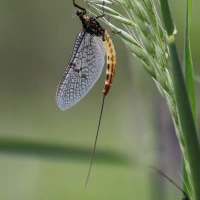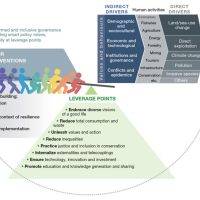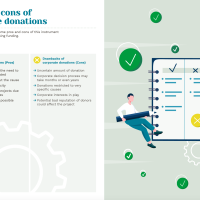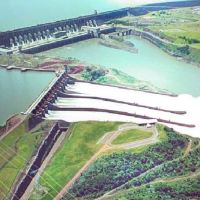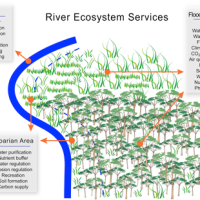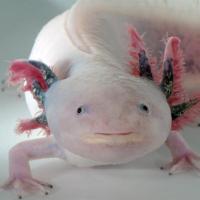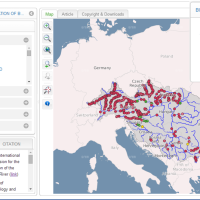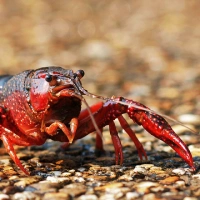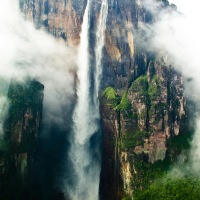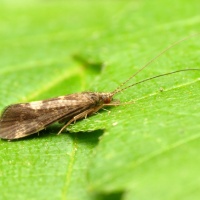Meet the MARS Team: Tuba Bucak

Lake Beyşehir in Turkey. Image: METU Limnology Laboratory
 This week we continue our Meet the MARS Team feature with an interview with Tuba Bucak, a PhD researcher from the Middle East Technical University in Turkey. Tuba’s research uses computer modelling techniques to study the potential impacts of climate change on freshwaters in the Mediterranean region.
This week we continue our Meet the MARS Team feature with an interview with Tuba Bucak, a PhD researcher from the Middle East Technical University in Turkey. Tuba’s research uses computer modelling techniques to study the potential impacts of climate change on freshwaters in the Mediterranean region.
1. What is your focus of your work in MARS, and why?
My work in MARS focuses on the effects of multiple stresses on a catchment scale. I am involved in Task 4.2 (Southern river basins) and our study area is Lake Beyşehir catchment in Central Anatolia, Turkey.
2. Why is your work important?
What we are doing is not only understanding freshwater ecosystems, in the end we are hoping that our outcomes will help decision-makers to implement measures to protect freshwaters. My study lake is the largest freshwater lake of Turkey and serves as an irrigation and drinking water supply. Considering the semi-dry climate of the region and intense agricultural practices, water use for irrigation is the most important stress driver in the basin.
Climate change may also exacerbate the effects of excessive water use, as expected scenarios for the region project an increase in temperature and a decrease in precipitation. Hence, to maintain the ecological status of lake in the future, we should be able to link the stressors with the ecosystem services and develop mitigation measures for the future.

Eflatunpınarı spring – at a Hittite shrine – which feeds Lake Beyşehir. Image: METU Limnology Laboratory
3. What are the key challenges for freshwater management in Europe?
The key challenge is keeping the balance between the demands of the current society and the need to protect freshwater ecosystems. Generating scientific theory behind efficient management strategies is important, but convincing stakeholders (decision makers) to implement management strategies is the most difficult task, at least in Turkey.
4. Tell us about a memorable experience in your career.
My most memorable experiences have mostly happened on fieldwork. I think the best part of studying ecology is being in the field and having a real contact with the environment where you are working. In my first field experience, I was totally inexperienced, it was even my first camping experience! It was a long journey to the west of Turkey and we were in the field for 2 weeks, camping 2-3 days at each lake whilst conducting very intense sampling. These were remote lakes on which there was little information, hence every sampling trip was with full of surprises.

Tuba and labmates carrying samples to mesocosm experiments as part of the REFRESH project. Image: METU Limnology Laboratory
My second memorable experience is from my Master’s degree. We conducted an in-situ mesocosm experiment in a lake close to our university. It was also very intense field work, lasting for 4 months, involving setting up and running mesocosms. I remember me and my mesocosm partner (Ece), going to the sampling at 8:00 am and leaving the lake at almost 8:00 pm. Then our adventure continues at the lab (filtering all those samples) until 3:00 am! It was possible to freeze the samples and do the analyses later, but I don’t know, when you are young you don’t think that much…but it was good that we both lost 5 kg that summer due to intense field and lab work!
5. What inspired you to become a scientist?
I never thought about the possibility of doing anything else other than being a scientist. I always like watching documentaries about nature and imagining myself being there. Being a documentary producer can also be fascinating but if you want to understand natural processes, you should focus deeper. Hence being a scientist/ecologist seemed to me the best way to do what I want.

Tuba out on a fish sampling experiment. Image: METU Limnology Laboratory
6. What are your plans and ambitions for your future scientific work?
Firstly I want to finish my PhD and to feel that I have accomplished that project. It will be a small step for humanity but very big step for me! I am also planning to learn more about marine sciences as well. My Master’s and PhD mostly focus on freshwater and I think it will be interesting if I can work on marine sciences as well. I want to acknowledge Arthur C Clarke at this point. He is very inspiring to me, and he said “How inappropriate to call this planet Earth when it is quite clearly Ocean.”


